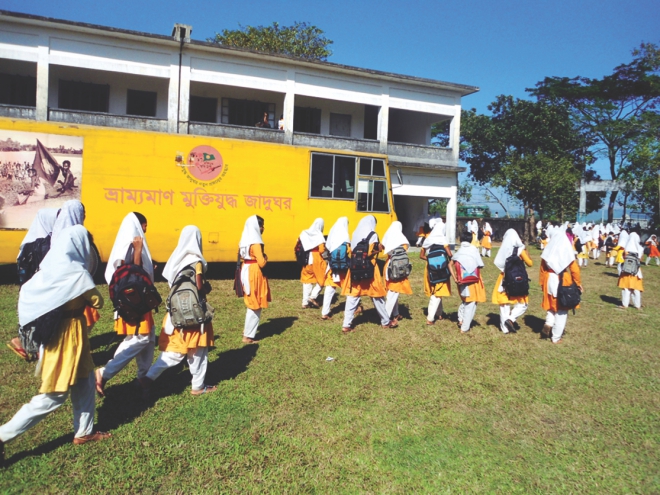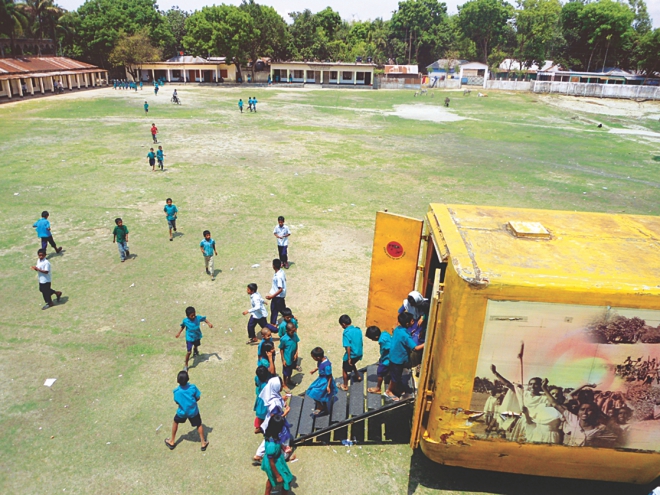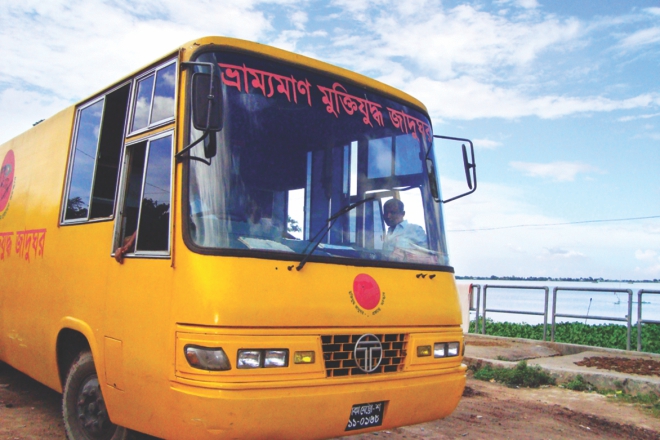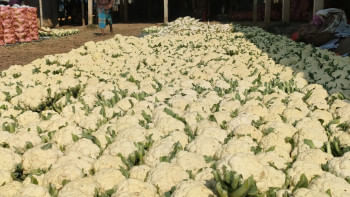History on Wheels

One of the complaints the young generation keeps hearing, from the elders, is about the lack of knowledge on our country's history and heritage. But with the kind of competitive lives we lead, where everybody is engaged with work or studies, it is difficult to find spare time to catch up on reading or visiting a museum and learning things outside of our school/university curricula. But there is no excuse if the history comes to us! The Liberation War Museum did just that with their project named Mobile Museum, the first mobilised museum of the country.
The museum authority first test piloted the mobile museum back in 2004 in a school in Panchagar named Shepaipara Dimukhi High School. Since then, the mobile museum has travelled to 43 districts. “When we started, we had our doubts about weather it will be successful or not, but the way the students showed their interest was very inspiring,” says Mofidul Hoque, Trustee, Secretariat Member of the Liberation War Museum and the man who planned the project of developing the mobile museum.

The mobile museum mostly focuses on schools and colleges of the districts it travels to. “It's not that we don't face challenges, but so far the response has been great. Our goal is to hit all 64 districts as fast as we can,” says Satyajit Roy Majumder, Manager, Liberation War Museum.
The mobile museum is not only about the exhibits. They arrange day-long-programmes that include lectures, documentaries, and discussions. The objective of the mobile museum was mainly to get this generation's interest towards the story of 1971. To get the students more involved, they are asked to write about 1971 war by learning from their elders, who were eye witnesses during the time of war. The writings they get are used as 1971 war archives by following the Oral History method. The Liberation War Museum has published two volumes of a book named 'Muktijuddher Protyokkho Dorshi Bhashsho' and made three documentaries from the stories they received.
“The write ups we get are very intimate and moving. The war itself was very emotional to the people, so when the students hear it from their elders they feel like it was a reality that they had faced themselves. Because of that, the students feel more attached to our history which serves our whole purpose,” says Mofidul Hoque.



 For all latest news, follow The Daily Star's Google News channel.
For all latest news, follow The Daily Star's Google News channel. 



Comments